RWTH Aachen University
Templergraben 55
52062 Aachen
Germany
www.rwth-aachen.de
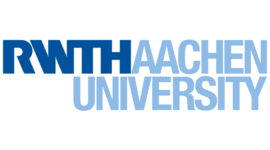
RWTH Aachen University
Templergraben 55
52062 Aachen
Germany
www.rwth-aachen.de
RWTH-iAMB
The Institute of Applied Microbiology (iAMB) has modern facilities, with a ca. 500 m² S2 gene technology laboratory including fermentation and analytical laboratory (e.g., GC-FID, GC-MS(MS), HPLC-UV-RI, HPLC-CAD, HPLC-MS). Aim of research at the iAMB is the development of efficient universal pro- and eukaryotic cell factories using systems analysis, metabolic engineering, synthetic biology, and cultivation intensification. These platform organisms are then able (depending on the integrated synthesis modules) to produce fuels or industrially relevant chemicals from renewable resources or alternative carbon sources. Nowadays, three senior scientists, six PostDocs, and 15 PhD students establish high scientific standards in research and teaching. Embedded in the Aachen Biology and Biotechnology department (ABBt), the iAMB benefits from the full range of expertise and equipment of six other highly specialised RWTH-institutes.
RWTH-BIOTEC
The Institute of Biotechnology (BIOTEC; embedded in ABBt) and the DWI-Leibniz-Institute for Interactive Materials host the Schwaneberg group for the last 15 years. The group has positioned at the leading edge in the interdisciplinary field of protein engineering driven by directed evolution and rational design. In five divisions, a joint research agenda is a pursuit to discover fundamental protein engineering principles. The scientific competence is built on an array of developed methods and technology platforms for directed evolution. Methods comprise diversity generation tools (Molecular Bioeconomy division), the development of high throughput screening systems (Hybrid Catalysis division), and computational biology tools (Computational Biology Division). Within two application subgroups Next Generation Biocatalysis and Biohybrid Systems, protein engineering is focused on the identification of novel applications in the field of (bio)chemical industry and material sciences. All five divisions work together to generate a fundamental understanding of protein properties on a molecular level and to use the discovered principles for efficient process development as well as the design of interactive materials for a sustainable bioeconomy. Currently, the Schwaneberg group includes six senior scientists, 11 Post-Docs, and 20 PhD fellows.
RWTH-ITMC
The Institute of Technical and Macromolecular Chemistry (ITMC) RWTH aims at the development of fundamental scientific knowledge and know-how for applied chemistry and the education of students in the area of sustainable catalytic synthesis. These fields include the development of homogeneous catalysts with particular emphasis on catalyst synthesis, asymmetric catalysis and novel heterogeneous catalysts. A primary focus relates to the activation of small molecules (CO2, CO, NOx), and the valorisation of biomass or waste materials. Lab-scale synthesis is complemented by computational studies and strong expertise in high-resolution NMR and process capable analytic techniques. Together with the activities in advanced fluids, innovative technology for continuous catalysis is at disposition and closely linked to reactor design and development of inline and online monitoring techniques. ITMC is a joint institute between the chairs of Chemical Technology ("Technische Chemie") and Macromolecular Chemistry, employs about 140 scientists and intends to bridge molecular sciences and engineering. Accordingly, ITMC is involved in numerous interdisciplinary projects, among them the highly renowned Cluster of Excellence "The Fuel Science Center - Adaptive Conversion Systems for Renewable Energy and Carbon Sources". Since 2008, ITMC is the host of CAT Catalytic Center, a joint research centre with Covestro AG.
RWTH-AVT
At the chair of Fluid Process Engineering of Aachener Verfahrenstechnik (AVT), the focus of research lays on low energy separation techniques such as extraction (liquid-liquid and natural product extraction), crystallisation and chromatography. Goals are the development of new methods for the design and optimisation of single separation steps and entire separation sequences based on combined experimental investigations and (detailed) process modelling. The developed methods apply in the biotechnological process, e.g. for the separation of bio-based amines or acids from fermentation broths using reactive liquid-liquid extraction. In our new research building "Next Generation Processes and Products – NGP²", modern laboratory equipment is available to measure thermodynamic data and determine model parameters. A pilot plant scale bio-refinery allows the validation of model results.
RWTH-EUPM
The EU Project Management Office (EUPM) structurally belongs to the Department 4.0 Research & Career within RWTH's central university administration. EUPM provides advisory services for researchers and assists as the central contact point for all RWTH institutes in administration, monitoring, finances and reporting during the proposal writing phase, throughout the project lifecycle and after the conclusion. It has extensive experience in contractual, financial and administrative procedures in large-scale EU- or DFG-projects.
RWTH-iAMB
Besides the scientific coordination and management of the MIX-UP project, the focus of the iAMB is to enhance the capability of Pseudomonas strainsto metabolise PET and PUR monomers (EG, AA, BDO, TA, and TDA). Further, metabolic engineering will be applied to complement the microbial strains, enabling the digestion and metabolization of monomers from recalcitrant polymers as PE, PP and PS (i.e. styrene). Moreover, P. putida will be modified to take up monomers from the biopolymers PLA, PHA and PBS. All these varying strains engineered for the uptake of specific plastic monomers will be combined to generate defined mixed cultures capable of degrading monomer mixtures. To face real-life plastic recycling conditions the stability of the mixed cultures under substrate fluctuating conditions will be investigated. Also, a so-called "bacterial community police" will be generated and integrated into the mixed cultures, as an internal bacterial control system for selective toxin removal from hydrolysed plastic waste.
Another aim is to exploit microorganisms for the synthesis of bio-based components for green plastics. Therefore, single plastic utilizers will be engineered to synthesise bio-based internal plasticisers, hydroxyalkanoyloxy-alkanoic acids (HAAs). Moreover, these pseudomonads will form part of microbial consortia. Within the consortia, HAAs synthesised by bacteria serve as a carbon source for fungi that will produce complex bio-bricks and bio-plastics. A toolbox of fluorescence protein-based flux probes will be developed to assess the contribution of each strain to a consortium. P. putida naturally accumulates the bioplastic PHA. The purification of the intracellular storage product, however, requires additional equipment and energy. To overcome this obstacle, we will investigate the non-lytic secretion of PHA via a P. putida Type I secretion system.
RWTH-BIOTEC
For the MIX-UP project, RWTH-BIOTEC will be responsible for engineering anchor-enzyme cocktails to degrade mixed plastics. Hereby the identified peptides will be fused to corresponding depolymerases. Directed evolution will be performed for up to two anchor peptides to accelerate polymer degradation in mixed plastic waste. Further, anchor peptide (variants) mediated polymer degradation will be demonstrated on model coatings and quantified by quartz crystal microbalance with dissipation (QCMD). RWTH-BIOTEC is also involved in the immobilisation of whole cells on target polymers by anchor peptides. Whole cells will be immobilised on the polymer surfaces through the surface display. Additionally, accelerated polymer degradation by QCMD will be investigated, and weight loss will be determined. Moreover, RWTH-BIOTEC is involved in the investigation of anchor peptides for selective polymer binding. For this task, 20 structurally different anchor peptides will be tested to identify one peptide per target polymer (PET, PUR, PLA, PE, PS, and PHA) and one general binder.
RWTH-ITMC
RWTH-ITMC will use chemical hydrogenolysis to depolymerise the remaining polymers after enzymatic hydrolysis. From this catalysis diols will be obtained, which can further be used for three different purposes: 1) substrate for the microbial cultures, 2) feedstock for chemical re-polymerization and 3) precursors for the synthesis of reaction solvent for recalcitrant waste stream utilisation.
RWTH-AVT
In the MIX-UP project, a liquid-liquid extraction will be developed to explicitly separate diamines released during PUR hydrolysis. These compounds are both highly valuable and toxic for microorganisms. The separation of diamines is required to increase fermentation performance and the economy of the overall process. Suitable extraction parameters will be used for highly efficient extraction and solvent recovery.
RWTH-EUPM
The EU Project Management Office from RWTH is responsible for the flawless communication and knowledge exchange of project-related information and results within the consortium. This includes monitoring and internal and official reporting processes of project achievements regularly as well as the coordination of internal and public meetings and events. Within Work Package 1 "Project management and coordination", EUPM assists the scientific coordinator in the day-to-day management. The Project Manager is also the go-to contact point for all members during the project runtime for administrative and contractual matters, while being the contact point for the beneficiaries for financial issues, and provides information, guidelines, and templates at all stages of the project, ensuring implementation and continuity. Furthermore, EUPM is responsible for the coordination of public and scientific dissemination within Works Package 8 "Dissemination and exploitation". The main task in this WP is the set-up of the project related website and the regular publication of news on this website and social media channels.

RWTH Aachen University
Institute of Applied Microbiology
Chair of Applied Microbiology
Lars M. Blank, a Chemical Engineer and Biologist by training, is a full professor and head of the Institute of Applied Microbiology at the RWTH Aachen University, Germany. The valorisation of plastic or as propagated "plastic waste to plastic value" was started in the H2020 project P4SB, which he also coordinated. In general, Lars M. Blank focuses on fundamental and applied aspects of microbial metabolism in his research. Of specific interest is the interaction between the metabolic network and the introduced genetic and environmental perturbations. The research on in silico/in vivo metabolic network operation aims at a deeper understanding of cell function, with the ultimate goal of rational cell engineering. In his teaching, Lars M. Blank focuses on the integration of biological concepts with the tools from bioinformatics and engineering. He believes that a sound knowledge base in the life sciences is key for creative and thus successful work in the areas of Metabolic Engineering and Synthetic Biology. Lars M. Blank is Associate Editor of Engineering in Life Sciences, Fungal Biology and Biotechnology, Journal of Bioscience and Bioengineering, Metabolic Engineering, Metabolic Engineering Communication, and Microbial Biotechnology.
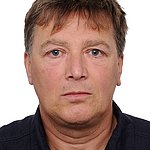
RWTH Aachen University
Institute of Applied Microbiology
MIX-UP Co-Coordinator, Senior Scientist
Hendrik Ballerstedt studied Biochemistry at Martin-Luther University Halle/Saale, Germany. He obtained his PhD (1999) on research into reductive dehalogenation of polychlorinated dibenzo-p-dioxines. Subsequently, he accepted a position at TNO Delft, the Netherlands Organization for Applied Research, and worked in various projects in bioremediation, microbial biocatalysis and metabolic engineering of pseudomonads for more than 10 years. After some years in the highly innovative MicroPro GmbH in Magdeburg as principal scientist, Hendrik returned to academia in 2015. Following an interim period at the Federal Institute for Geosciences and Natural Resources in Hannover, he joined iAMB in Aachen. He has experiences in international projects and already took part in H2020 projects BioMOre and P4SB.

RWTH Aachen University
Institute of Applied Microbiology
Junior Research Group Leader
Till Tiso received his Diploma in biochemical engineering at the TU Dortmund University. In his PhD at the RWTH Aachen University he was working on strain engineering for the production of rhamnolipids using recombinant P. putida strains. Since 2016 he is heading a junior research group at the iAMB of the RWTH Aachen University. The topics of his research group include strain and process development at lab scale using tools from metabolic engineering and synthetic biology. The projects deal with diverse fields as biosurfactants synthesis, plastic degradation, and development of microbial chassis strains for industrial biotechnology.
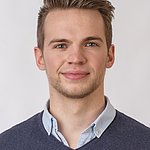
RWTH Aachen University
Institute of Applied Microbiology
PhD Student
Birger Wolter received his Master's degree in biology with the major in Synthetic Biology and Biotechnology in 2019 at the HHU Düsseldorf, Germany. Since 2020 he works as a PhD student at RWTH in the institute of Applied Microbiology (iAMB). His research is mainly focused on metabolic engineering and synthetic biology.
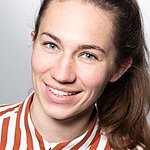
RWTH Aachen University
Institute of Applied Microbiology
PhD Student
Gina Welsing, scientist, received her Bachelor's degree from Freie Universität Berlin and in 2019 she obtained a Master's degree in Molecular Life Science from University Göttingen. She is currently pursuing a PhD at iAMB under the supervision of Prof. Lars Blank. Her research focuses on enabling microbial communities to metabolise mixed plastic monomers via metabolic engineering and synthetic biology.
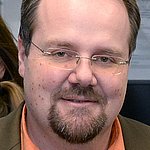
RWTH Aachen University
Institute of Biotechnology
Head of Institute, Chair of Biotechnology
Prof. Dr Ulrich Schwaneberg is the head of the Institute of Biotechnology at RWTH and is co-appointed at the DWI-Leibniz-Institute for Interactive Materials. He has many years of research experience in protein design, enzymatic catalysis, and the development of high-throughput screening systems.
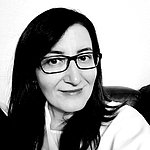
RWTH Aachen University
Institute of Biotechnology
Scientific Coordinator
Dr Nursen Sözer, scientist, received her PhD from RWTH. After working with two SMEs as Head of QA and COO and making her MBA, she started to work as a scientific coordinator with the Chair of Biotechnology RWTH Aachen. She is responsible mainly for finances, contracts and personnel.

RWTH Aachen University
Institute of Biotechnology
PostDoc
Her current research interests cover analytical method development for product detection, screening assay development for enzyme engineering, enzyme engineering towards different properties, structure and function relationship analysis. The main objectives of her research over the past five years were sulfotransferase engineering for regioselective functionalization of catechols, and pharmaceuticals as well as P450BM3 engineering towards hydroxylation of surfactants.

RWTH Aachen University
Institute of Biotechnology
PhD Student
Yi Lu is a PhD fellow in the Schwaneberg group. She received her Bachelor's degree in 2016 and Master's degree in 2019 from the Jiangsu University, China. Currently, she is pursuing her doctoral degree under the supervision of Prof. Ulrich Schwaneberg at RWTH. Her current research interests focus on enzyme engineering, hybrid catalysis, and their application in polymers.
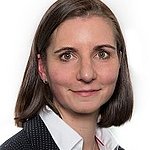
RWTH Aachen University
Institute of Biotechnology
Postdoc
After receiving her diploma in Biology from RWTH Aachen University in 1998, Carin did her PhD at the Institute of Phytopathology, JLU Giessen, in Molecular Phytopathology. After a maternal leave she joined the group of Dieter Peschen at Fraunhofer IME in Aachen for three years before she became Managing Director of a Life Science Association in Aachen and later Innovation Manager at Forschungszentrum Jülich. In October 2020 she came back to RWTH to work as Managing Director of the Profile area MSE and as Postdoc in the MIX-UP project at the Institute of Biotechnology/Schwaneberg Group.
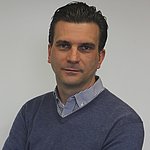
RWTH Aachen University
Institute for Chemical Technology and Macromolecular Chemistry
Chair for Translational Molecular Catalysis
Prof. Dr Jürgen Klankermayer holds the Chair for Translational Molecular Catalysis at the Institute for Chemical Technology and Macromolecular Chemistry at RWTH Aachen University. He studied chemistry at the University of Regensburg, Germany, and obtained his PhD under the supervision of Prof. Henry Brunner. After postdoctoral stays at the École Polytechnique (Paris, France) and the University of Oxford (UK), he started his independent career at RWTH Aachen University. The research of his team focuses on the development of tailored molecular catalyst systems for the activation of challenging functionalities at the interface of chemistry and energy. He is the coordinator of the Horizon 2020-BBI-PPP sponsored project "GreenSolRes" dealing with solvent and resin production from lignocellulosic biomass, and in the core-team of the cluster of excellence "The Fuel Science Center". For his work on biomass and carbon dioxide valorisation, he received the European Sustainable Chemistry Award (2014).
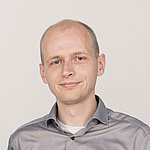
RWTH Aachen University
Institute for Chemical Technology and Macromolecular Chemistry
Administrative contact
Ole Osterthun studied Chemistry at RWTH Aachen University and is pursuing a PhD under the supervision of Prof. Klankermayer at the Institute for Chemical Technology and Macromolecular Chemistry at RWTH Aachen University. He is also working at the RWTH Innovation GmbH as part of the Excellence Start-Up Center.NRW.
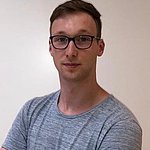
RWTH Aachen University
Institute for Chemical Technology and Macromolecular Chemistry
PhD Student
Tobias Botz started studying chemistry in 2014 at the RWTH Aachen University and joined the group of Professor Klankermayer in 2018 for a master thesis and subsequent doctorate.
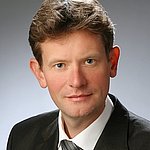
RWTH Aachen University
Instutite of Fluid Process Engineering
Professor
Prof. Andreas Jupke, head of AVT,graduated in chemical engineering at TU Dortmund where he also received a Dr.-Ing. for his research on the model-based investigation of batch and simulated moving bed chromatographic processes. In 17 years of experience in industry (Goldschmidt, today's Evonik, and Bayer) he was responsible for process design, the energy efficiency of chemical processes and polyurethane pilot processing. His research at RWTH Aachen now is mainly focused on liquid separations, e.g. liquid-liquid extraction, separation of dispersions, crystallisation and chromatography.

RWTH Aachen University
Institute of Fluid Process Engineering
Staff Scientist
Jörg Eberz, scientist, received the Master's degree in Process Engineering at the RWTH Aachen University. Since 2019 he does his doctoral studies at the RWTH Aachen University AVT.

RWTH Aachen University
Division 4.2 - Management of third party funds
EU Project Management
Christine Kempchen, scientist, received the Master's degree in Environmental Health Sciences at the Maastricht University. She gained considerable expertise during the coordination of research projects funded by national institutions and the European Union while working at a German private research institute. After that, she transferred this knowledge as innovation and sustainability manager to two Dutch SMEs. Since 2013 she is active as European project manager at the RWTH, division 4.2 Management of third party funds. She and Prof. Lars Blank already worked together as coordinators of the H2020-project P4SB (GA no. 633962).
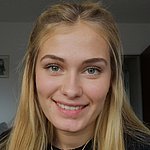
RWTH Aachen University
Division 4.2 - Management of third party funds
EU Project Management
Lilli Jansen studied English and Biology in the teacher trainee program at RWTH Aachen University and received her master's degree in 2022. She joined the MIX-UP team during her master's studies when the project started in January 2020 and supported the EU project management team at RWTH Aachen University as a student assistent. In April 2022 she joined the team as a European project manager and is responsible for the coordination of MIX-UP.

RWTH Aachen University
EU Project Management
Student Assistant
Anna Kwetina started studying industrial engineering in 2019 at the RWTH Aachen University and joined the MIX-UP Team in October 2021 until April 2023. As a student assistent, she was part of the EU Project Management team and responsible for the MIX-UP website, coordination of events and administrative tasks.
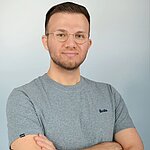
RWTH Aachen University
EU Project Management
Student Assistant
Amir studied Electrical Engineering at RWTH Aachen University and is currently doing his Master's degree in Power Systems Engineering. He joined the MIX-UP team in January 2024 as a student assistant and is now responsible for the MIX-UP website, event coordination and administrative tasks.